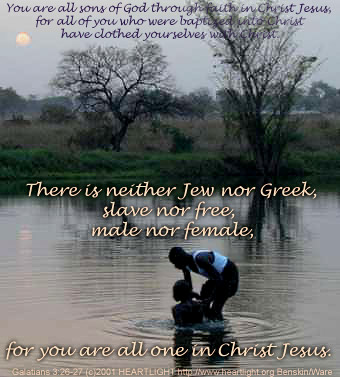We rejoiced with twelve beautiful new children of God! They were freshly born of water and Spirit (John 3:3-7; Titus 3:3-7) and gathered for prayer with wet heads and a bit of chill from the cold night. They stood in front of over one hundred others from our church family and their Bhutanese refugee friends and family. For the previous several months, they had studied two to three times a week with someone like them, who spoke their own language, from their same culture, and fellow refugees.
 One of the young men who had studied with these precious new brothers and sisters in Christ was someone I was blessed to have baptized and mentored. He and his brother had challenged their Bhutanese friends to follow Jesus as Lord. Most had taken between twelve and fourteen months to follow Jesus as Lord. That commitment to Jesus meant renouncing their allegiance to the vast number of gods of their culture that they had worshiped in their former religion. As someone who has taught, preached, and spoken frequently on 1 and 2 Thessalonians, I couldn't help but think of the following passage:
One of the young men who had studied with these precious new brothers and sisters in Christ was someone I was blessed to have baptized and mentored. He and his brother had challenged their Bhutanese friends to follow Jesus as Lord. Most had taken between twelve and fourteen months to follow Jesus as Lord. That commitment to Jesus meant renouncing their allegiance to the vast number of gods of their culture that they had worshiped in their former religion. As someone who has taught, preached, and spoken frequently on 1 and 2 Thessalonians, I couldn't help but think of the following passage:
The Lord’s message rang out from you not only in Macedonia and Achaia — your faith in God has become known everywhere. Therefore we do not need to say anything about it, for they themselves report what kind of reception you gave us. They tell how you turned to God from idols to serve the living and true God, and to wait for his Son from heaven, whom he raised from the dead — Jesus, who rescues us from the coming wrath (1 Thessalonians 1:8-10).
Their challenge to make Jesus Lord of lords was one of the reasons that we sang "No Other Gods," by David Moffitt, once per month in the service they regularly attended:
Nothing on earth will compete for Your throne.
You are the sov'reign, I Am,
And You'll reign in our hearts alone.
We will exalt You on high forever,
King of all kings and the Lord of all lords,
We will have no other gods before You!
They had confessed Jesus as the Son of the only living and true God. They had confessed Jesus as Lord and called on his name to be their Savior as they were baptized. They joined over a hundred of their fellow refugees in the family of God that met with us. Many of their baptisms had been household baptisms, multiple generations who were old enough to believe were baptized at the same time. This practice reminded me of Cornelius, Lydia, and the Philippian jailer and their households (Acts 10:44-48, 16:11-15, 25-34); each group was baptized at the same time.
As we welcomed these precious new believers into the family of God, we all joined together saying the following words, spoken in both Nepali and English:
One God.
One Family.
Forever.
Amen!
Why this declaration?
Listen to how the Bible talks about the baptismal moment of new believers :
For we were all baptized by one Spirit into one body — whether Jews or Greeks, slave or free — and we were all given the one Spirit to drink (1 Corinthians 12:13).
Or listen to this passage:
So in Christ Jesus, you are all children of God through faith, for all of you who were baptized into Christ have clothed yourselves with Christ. There is neither Jew nor Gentile, neither slave nor free, neither male nor female, for you are all one in Christ Jesus (Galatians 3:26-28).
One!
Children of God!
Clothed with Christ!
One in Christ, Jesus!
Powerful words and even more powerful reality because of God's grace, received by faith and experienced in baptism!
We are in a series of messages focused on "What is CORE" to the Christian faith.[CORE] Jesus made clear his followers must obey his Great Commission (Matthew 28:18-20). He stressed his authority and gave them the command to "make disciples." He then commanded three processes they must use to accomplish their mission faithfully:
- Going.
- Baptizing.
- Training.
Jesus clearly commanded that these three actions were essential for us to make disciples. The Lord's final command — what we often call the "Great Commission" — was to make disciples by going, baptizing, and training (teaching) new disciples to obey) what Jesus had commanded. The Lord didn't allow for a substitute version of his command, although many have offered a substitute version that often leaves out baptizing and training to obey Jesus' command.
I am thankful that over the last decade, more Bible-believing leaders are emphasizing the importance of baptism![VID]
Why? Why this increased emphasis? After all, many groups argue over the meaning, purpose, and manner of how baptism is to take place. If baptism is important, why so much disagreement?
Maybe the bigger questions should be:
- When Jesus commanded "baptizing" as an essential element of making disciples, why do some people downplay the importance of baptism or neglect it altogether?
- Why do some delay the time of baptism from the time of a person's confession of faith in Jesus? People in the New Testament kept these two movements of faith together. They kept them together even when doing so was inconvenient, or faith came at odd times of the day or night! (Please read through each of these accounts in Acts for examples — Acts 2:33-41, 8:26-38, 16:25-34).
- Why have some preachers separated faith and baptism from each other when the apostles taught that they went together (Acts 2:33-41; Galatians 3:26-29)?
- Why have many today substituted a work that the believer must do for baptism, a surrender in faith to the Lordship of Jesus? What is often commanded today is NEVER found in the New Testament. Neither Jesus nor his apostles commanded us to do it or had it done this way. Many today substitute saying the sinner's prayer and telling people to ask Jesus into their hearts, yet this practice is not found in Scripture.

Baptism was a big deal in the early church for many reasons. Granted, some reasons are more important than others, but here are some to consider:
- Jesus was baptized and practiced baptism in his ministry, then taught his disciples to baptize (Luke 3:21-22; John 4:1-3; Matthew 28:18-20).
- Baptism was practiced in the book of Acts by those sharing the story of Jesus and those who responded in faith to Jesus (Acts 2:38-41, 8:34-39, 10:44-48, 16:14-16, 25-34, 22:12-16).
- Jesus commanded that we baptize people to make disciples of them, and he did it as his final command when he was ascending into heaven (Matthew 28:18-20).
- Baptism is emphasized in the strongest of terms — like being born of God (John 3:3-7; Titus 3:3-7) or like dying, being buried, and then raised to a new life (Romans 6:3-7; Colossians 2:12, 3:1-4).
- Paul talks about baptism in his letters as a point of unity and the time the Spirit makes us one in Christ (Galatians 3:26-29; 1 Corinthians 12:12-13; Ephesians 4:1-7).
- Baptism is looked back upon as a life turn-around at conversion, the moment the believer puts on new clothes and begins life from a heavenly perspective (1 Corinthians 6:9-11; Acts 2:38-41).
For me, there is another, even more significant, reason: baptism is important because the Scriptures connect baptism to "What is CORE" in the gospel — Jesus' death, burial, and resurrection!
Rather than teaching baptismal regeneration or some spiritually mystical moment that changes us without faith in Jesus, let's look at how the New Testament connects baptism back to faith in what Jesus did for us to save us. This is where God's grace was given to us in the work of Christ that saves us. We receive that grace by faith in those saving events of Jesus, and these events unite us to "What is CORE"!
Now, brothers and sisters, I want to remind you of the gospel I preached to you, which you received and on which you have taken your stand. By this gospel you are saved, if you hold firmly to the word I preached to you. Otherwise, you have believed in vain. For what I received I passed on to you as of first importance: that Christ died for our sins according to the Scriptures, that he was buried, that he was raised on the third day according to the Scriptures... (1 Corinthians 15:1-4).
Notice some things that Paul says to emphasize that baptism is part of "What is CORE":
- Gospel I preached to you — all that Paul endured, he endured to share this message
- You received it — you believed it and took it into your heart
- You have taken your stand upon these truths — you've built your life and hope for the future in this.
- I received this — this was authoritative truth, verified by the other apostles
- I passed on to you — I made sure you knew this was CORE.
- It is first importance — in other words, everything else proceeds from your faith in Jesus and what he did to save you!
Now let's look at another passage that connects baptism to "What is CORE" and reminds us why it is so important:
Or don't you know that all of us who were baptized into Christ Jesus were baptized into his death? We were therefore buried with him through baptism into death so that, just as Christ was raised from the dead through the glory of the Father, we too may live a new life. If we have been united with him in a death like his, we will certainly also be united with him in a resurrection like his (Romans 6:3-5).
Notice how our baptism experience directly connects us to the saving work of Jesus (Romans 6:3-5; 1 Corinthians 15:1-4). Our faith and the grace of God enable us through baptism to connect to what happened at the Cross, in the tomb, and at the empty tomb on Resurrection Sunday!
- We were baptized into his death in baptism — literally united with Christ Jesus in his death.
- We were buried with him through baptism into death.
- We were raised, just as Jesus was so that we can be united with Jesus in a resurrection like his.
Notice the words are not words of symbolism but of experience and what we do with Christ in his saving events. Baptism was never called a symbol in the New Testament. It is a participation in these saving events with Jesus. Paul emphasized these truths when he addressed the Colossian believers (Colossians 2:12, 3:1-4). This is how people first became Christians in the New Testament — they believed Jesus died for their sins, they were buried with Christ into death and was they raised with Christ into a new life. They shared in those saving events through baptism because of their faith!

Now, let's notice what the Bible doesn't say.
The Bible doesn't say baptism is important because it is an essential or commanded "step" to salvation — baptism is never called a work, or a step, in the New Testament. It is linked to faith and grace, not to something we do. That is why baptism is something done to us — it's a passive verb everywhere it is used when talking about Christian baptism in the Bible.
The Bible doesn't say baptism is important because it is an "outward symbol of an inner faith" — it's never called a symbol. As a growing number of evangelical leaders have pointed out,[VID] praying the sinner's prayer and asking Jesus into our heart is never found in the New Testament. It is never shown as an example of the way early believers were saved. This approach to conversion is something we as moderns substituted. It is never found in the New Testament.
Believing or trusting in our hearts in what Christ did and calling on the Lord to save us is found throughout the New Testament. These two moves, in response to God's grace, kept faith and baptism together. Notice how faith and baptism (Acts 2:36-41; Acts 16:25-34), or calling on the name of the Lord and baptism (Acts 2:22-41; Romans 10:9-13; Acts 22:16; 1 Peter 3:21), are linked together throughout the New Testament. Faith expresses itself in being united with Jesus in what he did to save us (1 Corinthians 15:1-4; Romans 6:3-7):
- Christ died for our sins according to the Scriptures.
- He was buried.
- He was raised according to the Scriptures.
- We share in Jesus' death.
- We are buried with Christ.
- We are raised to a new life.
The New Testament teaches and anchors baptism as our participation by faith in "What is CORE"!

When we believe in the grace that God gave us in Jesus' death, burial, and resurrection, baptism becomes the moment when we call on the Lord's name for salvation. We are united with the Lord Jesus in his death, burial, and resurrection. Faith enables us to share with Jesus in his saving work.
Baptism is all about trusting that God sent Jesus to die for our sins and raised him from the dead so we could have the power of a new life in us through the Holy Spirit (Romans 8:9-11). Without faith in Jesus' death, burial, and resurrection, baptism is little more than being dipped in water is just washing dirt off our bodies (1 Peter 3:21).
No wonder people from different nations gathered to celebrate the confession of faith and the commitment to Jesus as Lord as these twelve precious people — the Bhutanese mentioned earlier — were baptized. That is why we all then joined together and said:
One God.
One Family.
Forever.
Amen!
This was just a foretaste of heaven (Revelation 7:7-12).
Which brings us to the questions we want to ask each week of our series:
- Do I believe this?
- Do I let this change who I am?
- Do I let this guide me to what is important in life, in fellowship, in worship, and in doctrine?
How can we not?

- Jesus!
- Believing
- Disciple-making
- Going
- Baptizing
- Training
- Loving
- Communing
- Worshiping
- Finishing
Special thanks for the use of images related to Jesus' ministry from The Lumo Project and Free Bible Images.










Reader Comments
Archived Facebook Comments